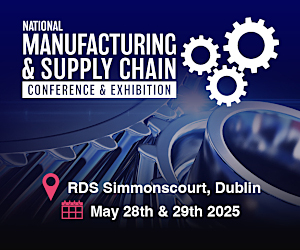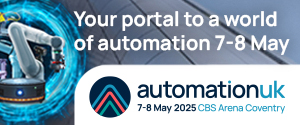Future engineers on right track after Siemens’ sustainable transport competition
Students and graduates from 15 UK universities in SustainaCity Racer challenge
22 offered access to early career opportunities after the two-day virtual event
Siemens has uncovered engineering, technology and business talent through a competition to design the smart and sustainable transport system of the future.
SustainaCity Racer challenged 50 bright sparks from 15 universities across the UK to design an intelligent, sustainable and interconnected network for a fictional city region, using a variety of transport types for citizens living in different environments.
At the end of the two-day hackathon-style event 22 students and graduates were offered access to early career opportunities with Siemens’ Digital Industries, Smart Infrastructure, and Mobility businesses.
For the second year running SustainaCity Racer participants were put into hybrid, multidisciplinary teams and challenged to apply engineering, digital and commercial elements to their designs.
The winning group, Eco Made Easy, proposed using a hyperloop tunnel and hydrofoil water vessel as the main transport, an app using real-time transport data and AI to map fastest, cheapest and most sustainable journeys, and an innovative POD transport which combines rail and bus.
The team included: Bagha Charuduth (Bsc in Computer Science at the University of Sheffield); Sarah Kelly (Mechanical Engineering and MSc in Automotive at the University of Bath); Hannah Pope (Computer Science at the University of York); Jake Sawyer (Electrical and Electronic Engineering at Manchester Metropolitan University); Boon Kean Teo (Msc in Electronics and Computer Engineering at the University of Sheffield); Thisura Wijayananda (Electronic Engineering with Management at King’s College London); Daniel Wilcox (Automotive Engineering at the University of Bath); and Tom Woodburn (MEng in Design Engineering at Imperial College London).
They scooped opportunities to interview for internship and graduate roles, as well as a £250 Amazon voucher and a trophy.
Hannah Pope, 20, studying Computer Science at the University of York, said “I believe sustainability is an important consideration for ensuring the quality of our future. Using aspects of my degree to explore and develop solutions with regard to transport appealed to me.
“I enjoyed every moment from the brainstorming to presenting our final solution.
“Before this competition, I was very focused on software engineering and pure computer science, but this competition has really opened my eyes to how other engineering disciplines fit together.”
Judges for competition included Thomas Edwards from Siemens Digital Industries, Nikhil Patel from Siemens Smart Infrastructure, and Sophie Marshall-Unit, Charbel Khalil, Hannah Surguy, Miles Moran and Ewan Bradley from Siemens Mobility.
Commenting on the event, Thomas Edwards, Graduate Engineer for Siemens Digital Industries, said: “SustainaCity Racer was launched in 2020 as a way of bringing multi-disciplinary minds together to collaborate to come up with innovative solutions to real-life problems and give students the opportunity to experience things that they may encounter if they worked at Siemens.
“We were extremely impressed with all 50 of the participants and the outstanding ideas they came up with to respond to the task of innovating in a new age of connected mobility that allows people to move more intelligently and sustainably.”
“All the contestants showed exemplary collegiate behaviour and cooperated with their team members in the race to win the top spot. The winners clearly demonstrated superb teamwork and we were particularly impressed with the creation of user stories which meant the needs of passengers were always at the forefront of decision making, leading them to an innovative yet realistic solution that worked for everyone. Their wildcard proposition of a train/pod solution captivated all of the judges.”
There were two runners-up groups, who also won opportunities to apply for internships and graduate roles at Siemens.
Team ‘TelePods’ included: Hannah Crawford (Electrical & Mechanical Engineering at the University of Strathclyde); Morgan Gillingham (Meng in Mechanical Engineering at the University of Southampton); Warren Hayes (Msc in Digital Technology Solutions with Software Engineering at Newcastle University); Nazar Islam (MEng in Electrical and Electronic Engineering at Aston University); Kacper Sikorski (MEng in Electrical and Electronic Engineering at The University of Sheffield); Freya Wentzel (MSci in Computer Science at the University of Nottingham); Tim De Goede (Mechanical Engineering at the University of Cambridge); and Hasith Jayawardana (Automotive Engineering graduate from the University of Sunderland).
Team ‘Save the World’ were: Matthew Lloyd (Meng in Electrical and Electronic Engineering at the University of Nottingham); Ishaan Pal (MEng in Mechanical Engineering at Imperial College London); Viviana Nicole Pazos Puente (MSc in Advanced Control and Systems Engineering at the University of Manchester); Jonathan Prince (MEng in Electrical/Electronic and Railway Engineering at the University of Birmingham); Muktha Rajan (MSc in Data Science at the University of Sheffield); and Ziya Ruso (MEng in Mechanical and Electrical Engineering at the University of Bristol).
Morgan Gillingham, 20, studying a Meng in Mechanical Engineering at the University of Southampton, said: “I have had a longstanding interest in how engineering can be applied to improving sustainability. I really enjoyed getting to work with students from a range of backgrounds, universities and degree subjects, something that we don’t often get exposed to.
“I think the experience has solidified my belief that I want to work in sustainable engineering, and I am thankful to Siemens for this opportunity.”
For details on all Siemens’ early careers opportunities including internships, apprenticeships and graduate schemes visit https://siemens.co.uk/earlycareers




























